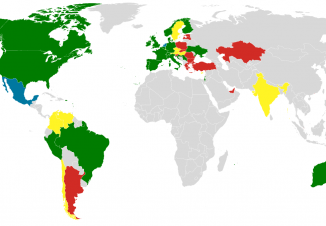
The gender pensions gap refers to the average difference in pension wealth between men and women. There are different ways to measure it. For example, looking at how much pension is built up at different ages, or pension income in retirement. A report by the UK government in June 2023 found that in the UK, on average, women have 35% less private pension wealth than men at minimum retirement age (currently age 55), based on 2018-2020 data.
By contrast, the average gender pay gap for employees in the UK was much lower, at 14.3% in April 2023. Although the gender pay gap has an impact, there are additional factors that contribute to the gender pensions gap. These include historic pension inequalities, the impact of workplace pension requirements on part-time workers, and pensions being left out of divorce settlements.
The Government’s report suggested the gap has decreased over time and we hope that trend will continue. However, it can take a long time for policy changes to have an impact. Pensions are built up over a lifetime and changes do not normally apply retrospectively. This means that the pension of someone retiring today could be impacted by inequalities in the 1980s or earlier.
Reporting on the gender pay gap is now well established in the UK, with employers with 250 or more employees required to disclose their gender pay gap under regulations introduced in 2017. While there is no requirement for UK employers to disclose their employees’ pensions gap, the Government has committed to reporting this information each year going forward. We hope that this leads to better awareness and understanding of the issue so that more work can be done to address it.
The survey responses from our pensions expert group highlight the different ways this issue is being addressed across jurisdictions, with the gap more significant in some countries than others. Common themes include important work to address underlying inequalities like the gender pay gap, such as in Cyprus, the Netherlands and Finland. Reforms to state pension systems also have an impact, such as in Mexico, Chile and Romania. We can expect further change in this developing area in the years to come.
Discover more about pensions on our Global HR Law Guide



